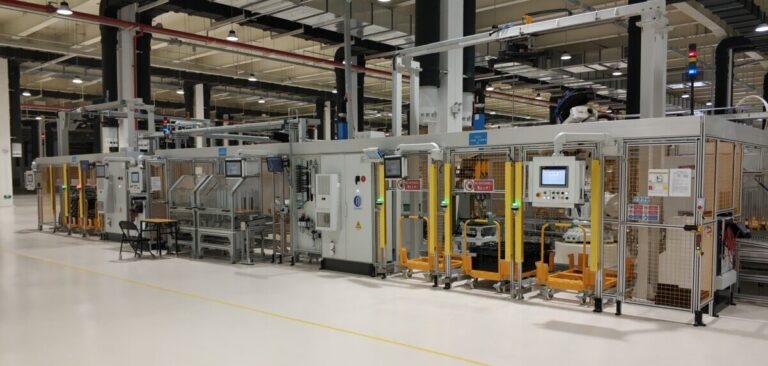Comau, part of Stellantis, has developed and deployed an automated e-drive assembly line at the Geely Veremt plant in Ningbo, China, for the end-to-end assembly of the electric motors, gearboxes and inverters.
Designed in close collaboration with Geely, the line uses a flexible automatic production system to assemble the permanent magnet motor rotors, gearboxes and electronics drives, in addition to automated quality control and testing. The solution has increased the plant’s automation rate from 40% to 80% while delivering a full-scale production capacity of 120,000 jobs per year.
Due to the complexity of the project, a joint technical team from both companies worked in close cooperation during the entire process. Comau notes it also leveraged over 45 years of experience in powertrain assembly when combining best-practice technology and process innovations to achieve Geely’s high-volume production targets.
“We have developed solutions that make our manufacturing process more agile and efficient as a concrete result of our collaboration with Comau,” said Geely Veremt VP Sun Yongjing. “Furthermore, the automated lines help ensure that our new products will continue to have the same high level of quality and excellence that make Geely a successful brand around the world.”
Using multiple robots to install the motor rotors, the automated line also features 3D vision positioning and guidance, automatic high-speed magnet installation, automatic injection of rotor cores and the automatic dual-position dynamic balance correction, magnetization and more. The electric drive line, on the other hand, includes advanced three-in-one assembly such as motor stator casing, thermal sleeve, motor static testing, motor dynamic testing, automatic bearing feeding and pressing, automatic bolt feeding and tightening, and the automatic measurement and selection of gaskets.
Since it commenced, Comau states it has dedicated significant design resources to the project, including 20 engineers who completed the design phase in just four months. The project execution team also overcame additional challenges due to the impact of the Covid-19 pandemic and product optimization changes, delivering the line in just over 12 months with mass production officially launched in late 2021.


